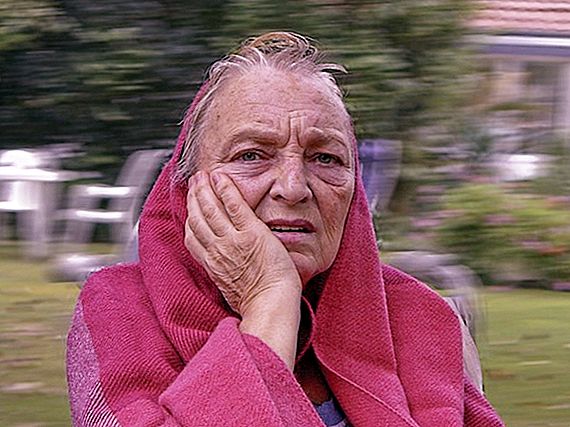Senile (senile) psychoses are a category of mental pathologies, which includes disorders that occur exclusively in old age. Most often, this or that form of psychosis is diagnosed at the age of 65-75 years. You can suspect the development of the disease, based on the characteristic features.

Among the senile psychoses include four main conditions:
- a simple form of senile psychosis;
- Alzheimer's disease;
- delirious psychosis in old age;
- confabulatory form.
Each type has its own distinctive signs (symptoms).
A simple form of senile psychosis
This variant of mental disturbance that occurs in old people is the most common and, ultimately, leading to dementia. However, it is necessary to make a reservation that any type of senile psychosis changes the personality, character, progresses and ends with a state of complete disability.
The first symptom of the pathology is memory problems. Amnesia begins to develop, not caused by a head injury or an overdose of any medication. Loss of memory is accompanied by the following conditions:
- the patient becomes harsh, "stale", cruel;
- selfishness and contentiousness increase;
- there is a gradual "coarsening" of the personality, a sick person literally changes before our eyes, becoming grouchy, gloomy, aggressive;
- there is a loss of interest in any business, hobby, life in general;
- the main goal is to satisfy only your needs, while the opinions and desires of the people around you are not perceived or cause an extremely negative reaction from a sick person;
- gradually normal sleep and wakefulness is disturbed; the sick person is especially active in the evening and night hours, not allowing relatives to rest normally that are with him.
Trying to reach a person in this state is literally impossible. The patient is completely absent of any criticism of himself and his behavior. He does not recognize the disease, denies any problems. In some cases - especially typical of men - sexual licentiousness appears.
With the development of mental pathology, a state of disorientation occurs: the patient cannot navigate not only on the street, but also in the home environment. He is not able to say what year is in the yard, how much time is on the clock, and so on. All interests are reduced only to physiological needs, while the patient gradually ceases to recognize not only family members, but even their reflection in the mirror, unable to determine who is who in the photograph.
Alzheimer's disease
For this form of senile psychosis, the above manifestations are largely characteristic. However, as a rule, Alzheimer's disease does not progress as fast as a simple form of psychosis. And, in addition, to begin to develop - very slowly - this pathology can also at an earlier age (after 50 years).
An additional symptom, often manifested in the context of this mental disorder, is hallucinations. At first, they can be extremely visual and short-lived. However, with the development of the disease, hallucinations become tactile and auditory, they begin to constantly pursue the sick old man.
The result of the disease is always the total decay of the individual.
Delirious psychosis in old age
This type of psychosis has most of the symptoms characteristic of the first two diseases. There are also memory impairments, a loss of interest, and so on. However, the key feature is delirium.
Delirium is a special form of mental disorder, which is characterized by illusions, hallucinations, delirium, confusion. As a rule, problems develop with attention, thinking, will, perception of oneself and the world, the emotional background is distorted.
Psychosis in old age is characterized by:
- classic delirium - the patient is a direct participant in his hallucinations, and not just watching from the side;
- mussitizing delirium - constant incoherent muttering; at the same time, the patient continuously sways monotonously, sits for a long time in one position and stubbornly removes non-existent feathers and dust particles;
- professional delirium - a person begins to perform any actions, make movements, and so on, corresponding to his professional activities in the past; so, for example, if the patient was a driver, then he can constantly "twist" a nonexistent steering wheel.
An exacerbation of the condition, as a rule, occurs shortly before death.
